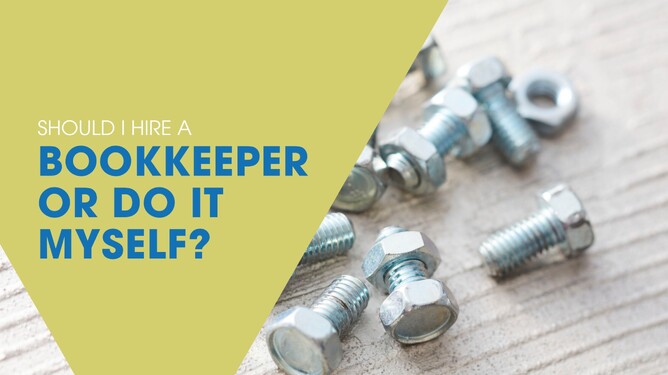There’s a simple way to decide if you should hire a bookkeeper or do it yourself.
You should DIY if: Your financials are simple, you have the time, and you can afford it (but remember, cost is more than just money).
You should hire a bookkeeper: If your business is growing, your financials are becoming more complex, and you can afford it. You might be struggling to keep up with taxes and payroll, or you don’t fully understand what you need to pay or what expenses you can claim.
The number one reason people hire a bookkeeper is… time!
People get busy. When was the last time you spent a whole evening “catching up” on your bookkeeping rather than spending time doing things you enjoy? After all, you can always make more money. But you can’t make more time. Running a business can often mean one thing: you’re too busy doing the work to have time for the admin.
Pro tip: Rather than trying to ‘do it all,’ break it down into tasks. Spend 10-15 minutes every morning on your admin, and you’ll soon catch up.
But at what point should you make the shift from doing it yourself to hiring a bookkeeper? Let’s explore.
#1. When the cost of bookkeeping is less than what you earn!
If you’re just starting out, it might be possible to manage your accounts yourself. There are lots of tools available (MYOB and Xero) to help you keep track of your financial data.
But at some point, your workload is going to get busier, and the admin will start piling up. What was once a manageable task has now become difficult to stay on top of.
If you’re pretty sure you could earn more in a few hours' work than what it would cost to pay a bookkeeper or accountant to do the same, it’s now time to hire a bookkeeper. If you’re finding that your time could be better spent growing and running your business, then it’s time to reach out.
#2. When you can afford it.
One of the biggest barriers to hiring a bookkeeper is often cost. If your business is still small or you’re just starting out, you may not be making much of a profit. But remember, your bookkeeper is a deductible business expense, so it can help lower the amount of tax you pay.
Waiting to hire a bookkeeper when you can afford to can be risky, because once your books are a mess, it takes time to sort them out, which pushes up fees.
Read ‘What to do if my books are a mess.’
But I understand that when you’re first starting out, often budgets are tight. However, if you mess up your books unintentionally because you don’t have the time or knowledge to do them properly, it could end up costing you more in penalties or fees in the long run.
It becomes a pay now, or pay later situation, and unfortunately, most people don’t realise how bad a shape their books are until taxes are due. That’s the worst time to be stressing over your books. As the saying goes, ‘Prevention is better than the cure!’
Read ‘How much do bookkeepers cost?’
The truth is, bookkeeping services are often more affordable than an accountant, because of the differences in responsibilities and qualifications. For businesses seeking basic financial management and record-keeping, a bookkeeper can be a cost-effective option.
#3. When your financial needs are complex.
If you’re having trouble keeping up with GST, Provisional, or income tax, bookkeepers can ensure your income, expenses, and deductions are accurately documented and streamlined for you. Hiring a tax agent can actually save you money, because we are experts in knowing what to claim.
I’ve seen clients paying more in tax because they simply don’t know what they can claim. The truth is, IRD terminology can be complex and confusing, and sometimes your financials just don’t marry up with the records they hold for you. The government doesn’t care if you don’t claim GST on all your expenses and end up paying twice. So, you either learn how to do bookkeeping properly or hire someone who knows how to.
Read more…
#4. When you’re struggling with debt and need advice.
If you’re already behind on tax payments, set up a dedicated account for income tax, GST, and PAYE so it doesn’t get mixed up in operational funds. This will make it easier at tax time.
I often hear from clients when a tax deadline is looming or they are struggling with overdue debt. If this is you, a bookkeeper can help you get things back on track and then streamline your finances so it doesn’t happen again in the future.
Contrary to perception, the IRD are willing to work with businesses facing financial difficulties to help them pay off their debt. I usually suggest setting up a payment plan to address debts before they escalate, and accounting software to help you keep track of your financial transactions.
Read more..
#5. When you decide to start your business.
Here are my 3 rules for hiring a bookkeeper:
If you don’t know how to do it.
If you don’t like doing it.
If it’s not making you money.
Then you should outsource your bookkeeping.
A wise business owner once said, “I’m sure I could figure it out, but I just don’t have the time… and I don’t want.” Many small business owners think that if they do it themselves, it will save them money, but remember, if you wanted to do bookkeeping, you would have become a bookkeeper.
I am biased, but I think the best time to talk to a bookkeeper is when you first start your business. Getting good financial advice at the start sets you up for success and can help you make informed decisions and avoid costly mistakes. I can help you:
Set up your financial systems and accounting software
Separate your business and personal finances
Create a budget and cash flow so you have a clear picture of your income and expenses.
Ensure you stay compliant, registered for GST, and meet IRD requirements
Help you track your financial performance and provide regular reports
Save you time and reduce stress. Reclaim those evenings!
If you’ve still got questions about whether a bookkeeper is right for your business, then get in touch! Email danny@balancedledgers.co.nz or phone 027 212 9569.


